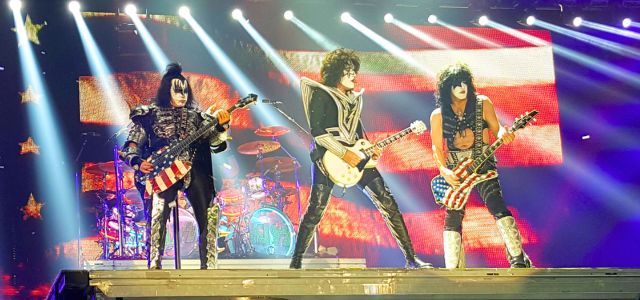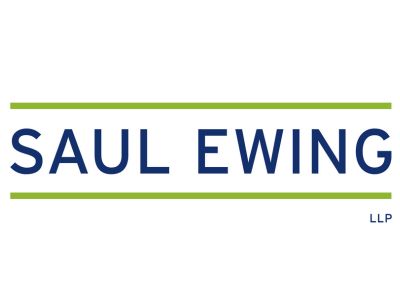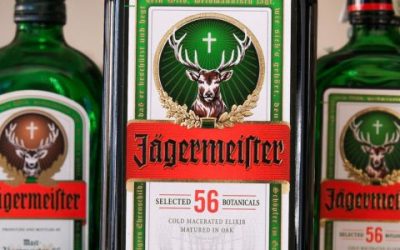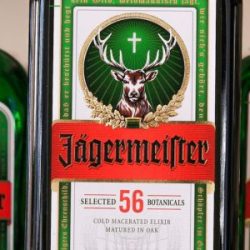Michael Jackson, Bob Dylan, Sting, David Bowie, Stevie Nicks, Bruce Springsteen, and now KISS. What do they all have in common? They have all sold their music catalogs in the past 10 years. Jackson and Springsteen reaped the biggest rewards at over $500M each. Catalog sales have become big business; the rock stars of the ’60s and ’70s are cashing in big time, and they have intellectual property (IP) law to thank for it.
I remember it like yesterday – one of the first albums I bought with my own money was KISS: Alive II. I was probably 13, and that album cover and distinctive KISS logo just drew you in. You had no idea if the music was even good or not. But it was good! It was dangerous rock and roll, the kind your parents didn’t want you to listen to. The cool logo, the face paint, the costumes; there was no other band quite like them. I realize now that trademarks played a big part in my fascination with KISS.
A private equity firm called Pophouse Entertainment has reportedly paid over $300M for the KISS music catalog and IP assets. That’s one of the largest sales in music history, and it would likely not have been possible without the trademarks. KISS holds over 50 US Trademark Registrations, all under a holding company called Kiss Catalog, Ltd. Everything from their unique face paint (US Reg. Nos. 4016074, 4016075, 4016076, 4016077) to their famous logo (US Reg. Nos. 5429581), to the slogan “You Wanted The Best. You Got The Best” (US Reg. Nos. 3147110) is protected. Even the names of the fictional characters portrayed by the band members are registered trademarks: Cat, Demon, Starchild, and Spaceman. Pophouse is promising its investors “a [KISS] biopic, an avatar show, and a KISS-themed experience [which are] already in the works.” While there is unquestionably huge value in the copyrights to songs like “Beth,” “Rock And Roll All Nite” and “Detroit Rock City,” one could argue that over half of the money paid by Pophouse was for the trademarks.
KISS frontman Gene Simmons is notorious for his marketing prowess. His book Sex Money Kiss details his somewhat controversial views on the marketing of rock bands. Love him or hate him, he is a big reason for the band’s longevity and popularity. The music is one thing, but Simmons and his bandmates have branded and marketed themselves like no other band that came before. It all started with the band’s first manager, Bill Aucoin. In 1978, Aucoin felt that the cycle of album releases and touring had taken KISS as far as they could go. He formulated a plan to cast KISS as modern-day superheroes, a process that began with the 1977 release of a KISS comic book, and after that, the release of a made-for-television film called Kiss Meets the Phantom of the Park. The merchandise soon followed, with everything from action figures to pinball machines to (if you can believe it) caskets branded with the KISS signature logo and characters. In a 2013 article for Brandweek Magazine, author Sandra O’Loughlin said that “KISS has licensed its name to more than 3,000 product categories, from lunch boxes and comic books to credit cards and condoms to become nearly a one-billion-dollar brand.” Some believe that KISS has generated more money from merchandise than any other recording artist in music history.
KISS tried removing their makeup in the ’80s, but it really didn’t pack the same punch. Don’t get me wrong, I liked 1983’s Lick It Up, but seeing the band without their trademark makeup was shocking and, for me, took away a big part of their appeal. That is why I say that trademarks were so important to this sale. Without the characters, the makeup, and the merchandise, it is simply not the same phenomenon. Aging rockers like myself came out in droves recently to see them put the makeup back on and play multiple farewell tours. That should tell you all you need to know.
So, a note to bands currently on the rise – protect your trademarks and keep generating more. 50 years down the line they could be the key to your retirement.

Written by Darius C. Gambino
Partner, Saul Ewing
You may also like…
UEFA partners with Alliance for Creativity and Entertainment to enhance global anti-piracy strategy
October 21, 2025 - The Union of European Football Associations (UEFA) has officially joined the Alliance for...
EUIPO and UANIPIO welcome the integration of Ukraine’s trademarks into TMview
The European Union Intellectual Property Office (EUIPO) and the Ukrainian National Office for Intellectual Property...
Jägermeister succeeds in opposing the EU trademark application Alten Kräuterfrau for alcoholic beverages
Mast-Jägermeister SE filed an opposition on the grounds of Article 8(1)(b) – likelihood of confusion between the signs...
Contact us to write for out Newsletter














